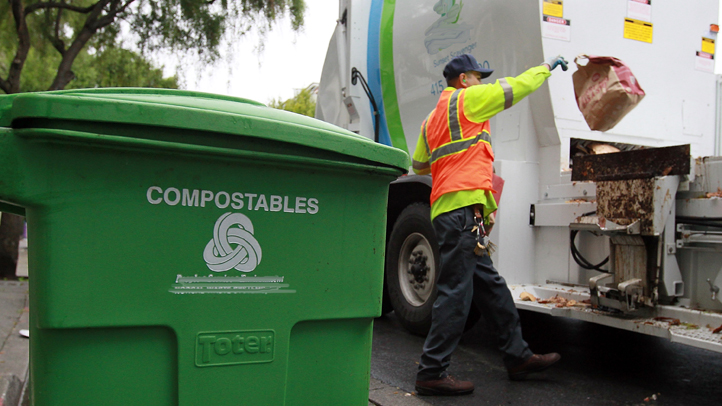
A San Francisco city human resources manager was arrested Thursday on charges of using city Community Challenge Grant money intended to be used for earthquake outreach for low income neighborhoods, and instead buying high-priced electronic gear and reselling it on the internet.
Stanley Ellicott, 38, of Oakland, was taken into custody while at work at the city Human Resources Department, prosecutors say.
Ellicott faces counts of aiding and abetting Lanita Henriquez, the former head of the Community Challenge grant program who was arrested on corruption charges last year.
Henriquez and a former city employee, Dwayne Jones, currently face charges of misappropriation of public money, bribery and financial conflict of interest allegations. Both have denied wrongdoing.
Get a weekly recap of the latest San Francisco Bay Area housing news. Sign up for NBC Bay Area’s Housing Deconstructed newsletter.
Ellicott, who could not be reached for comment, is also charged with felony receiving stolen property. The charges, prosecutors say, are unrelated to his role as a city human resources manager.
Prosecutors say the scheme involving Henriquez, Jones and Ellicott lasted between May 2017 and July 2021.
During that time, Henriquez allegedly signed off on a total of six grant contracts worth more than $1.4 million, to Jones, who had left the city to head RDJ Enterprises.
During that time, RDJ allegedly paid Ellicott nearly $270,000. Ellicott then “kicked back” more than $65,000 of that money to Henriquez in payments via Venmo and PayPal, according to prosecutors.
Henriquez allegedly got another $33,000 in nine checks issued by Jones’ entities, and received 48 checks worth $156,000 from Jones through her associates and family members.
During the scheme, prosecutors say, Ellicott helped manage the RDJ website and provided technical and graphic design work for the grants. Jones and Henriquez “concealed his involvement and billed his work” – which had not been authorized by the city – as being done by a staffer with RDJ, prosecutors say.
In the spring of 2019, according to the affidavit, Ellicott sold new cameras and electronic equipment on eBay that he had previously bought using grant funds.
Some $14,000 in gear he bought at Best Buy, prosecutors say, was paid for by way of a “resiliency” grant that was supposed to go for earthquake education and outreach supplies in low income communities. The gear allegedly resold included a virtual reality headset, an action camera, and a high definition TV projector.
Jones is alleged to have submitted false invoices exceeding $100,000 for emergency equipment for neighborhood groups that was never purchased. Henriquez allegedly signed off on the invoices.




